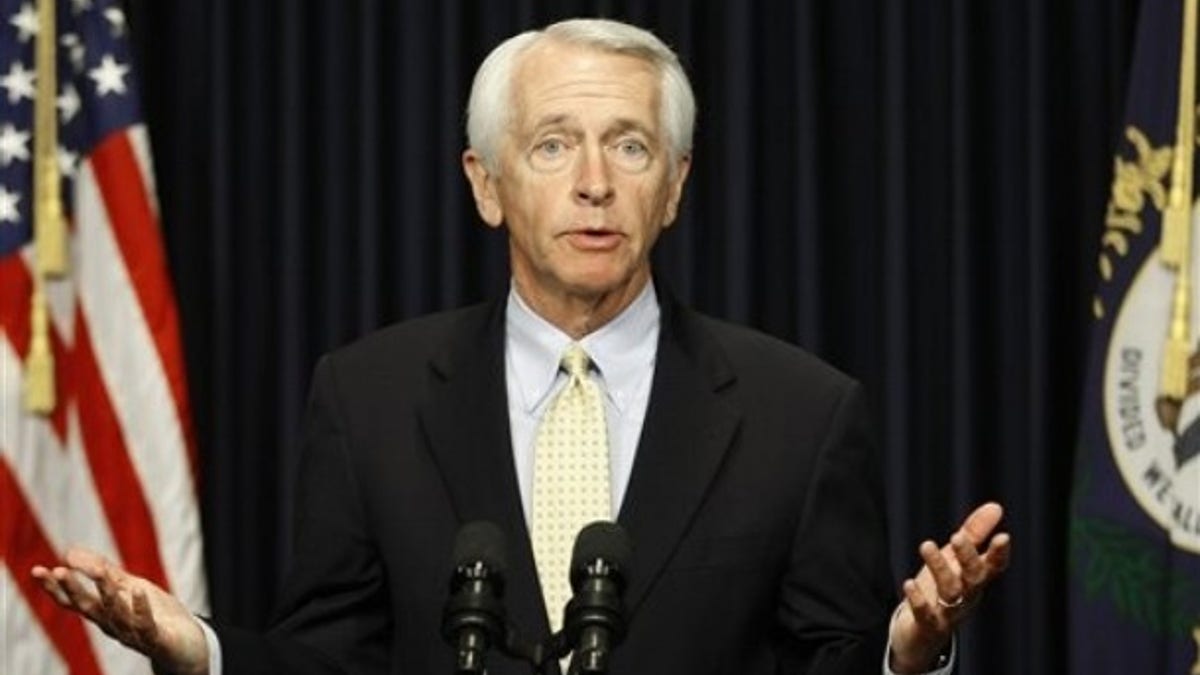
Kentucky Gov. Steve Beshear answers questions during a news conference in Frankfort, Ky. , Thursday, April 15, 2010. (AP)
The planned construction of Ark Encounter, a creationist theme park in Kentucky that could be eligible for millions of dollars in tax incentives, has come under fire from critics who say it would rupture the wall of separation between church and state.
Even though the $172 million project, which would include a replica of Noah's Ark, is being privately funded by a group of investors, the idea of tax dollars flowing into a religious park has some critics mad as hell.
"Noah managed to launch the first ark without a government subsidy and these folks ought to do the same," Barry Lynn, executive director of Americans United for Separation of Church and State, told FoxNews.com.
Kentucky's Tourism Development Act allows tourist attractions to receive up to 25 percent of their development costs over 10 years from sales tax generated by their business. Ark Encounter developers, who say they plan to spend $150 million, could get back $37.5 million.
Government officials have brushed aside the concerns that the state's support for a religious enterprise violates the First Amendment's requirement of separation of church and state.
"The people of Kentucky didn't elect me governor to debate religion," Democratic Gov. Steve Beshear, who favors tax incentives for the park, said at a news conference. "They elected me governor to create jobs."
Investors have said the park, which is slated to open in the spring of 2014, could draw some 1.6 million visitors a year, create about 900 permanent jobs and have a $214 million economic impact in its first year of operation.
The park would include an ancient walled city, a petting zoo, live animal shows featuring giraffes and elephants and a replica of the biblical Tower of Babel.
The project cleared its first bureaucratic hurdle this week when the Kentucky Tourism Development Finance Authority granted preliminary approval for state tax incentives. Final approval is contingent upon an economic analysis.
Developers of the theme park are also seeking donations toward the construction. They have collected more than $300,000 of their goal of $24.5 million, according to their website.
But Lynn says taxpayer money shouldn't be among the donations.
"This invites religious ministries to demand similar subsidies for everything they do and use the same argument they're using now," he said.
Lynn said his group has given "serious thought" to legally challenging the project.
"We are still somewhat hopeful that the preliminary approval will not turn into a permanent approval," he said. "We hope people will not just consider the threat of a lawsuit but the merits of it."
Neither Kentucky officials nor the park's organizers could be reached for comment.
The Lexington Herald-Leader, the state's second largest newspaper, rejected the argument that tax incentives for the project would violate the Constitution, saying in an editorial that "a private company seeking to make a profit off a biblical theme" is not the same as a church or religious organization seeking the same incentives.
But Lynn disagrees.
"The entity putting this together is a ministry. It doesn't hide that," he said. "You can't deny that people putting this park together are doing it for evangelical purposes."
The newspaper did express disapproval of the project on the grounds that it would create cheap jobs and tarnish the state's image.
"Hostility to science, knowledge and education does little to attract the kind of employers that will provide good-paying jobs with a future," the editorial reads. "Anyone who wants to believe in a literal interpretation of the Bible has that right. However, the way the Beshear administration handled this makes it appear Kentucky either embraces such thinking or is desperate to take advantage of those who do. Neither is appealing."




